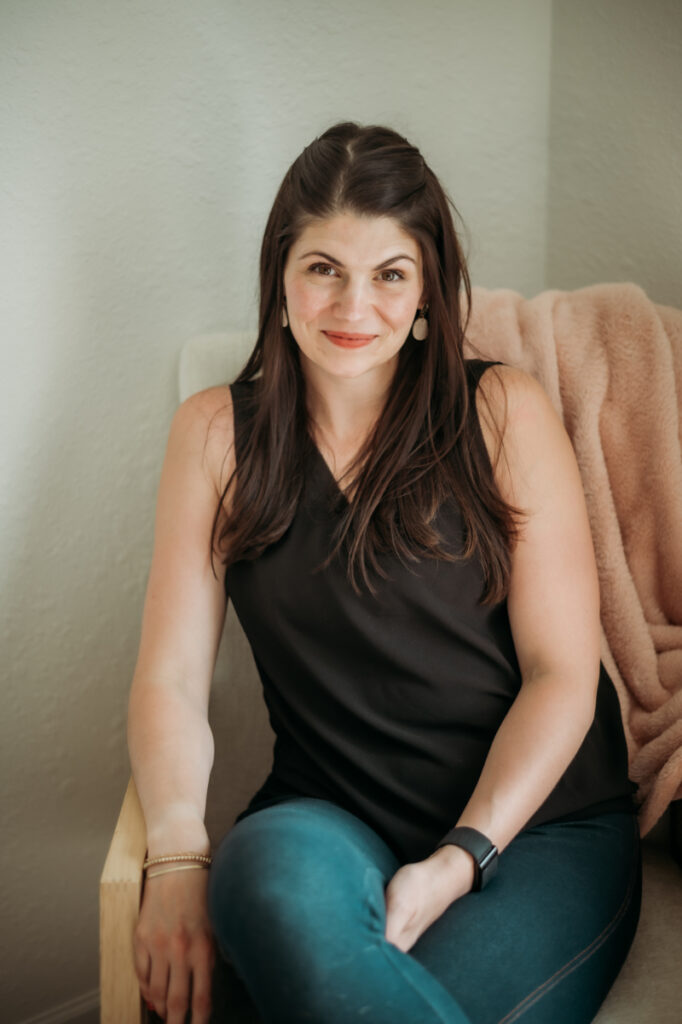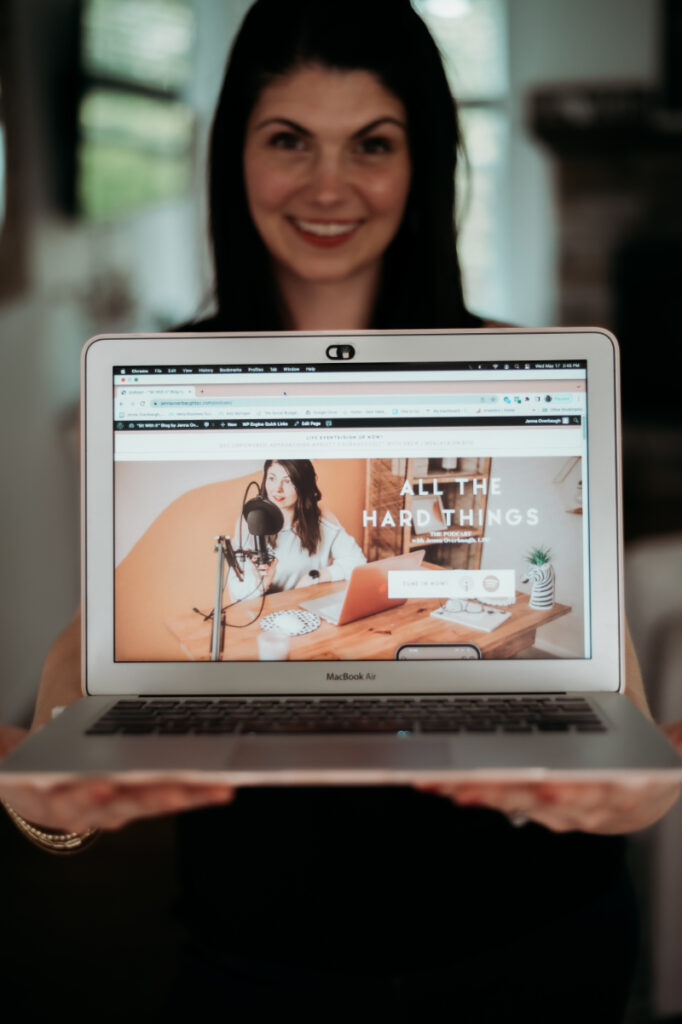When ADHD and OCD Collide: Managing Intrusive Thoughts With an Executive Function Twist
July 22, 2025
Living with ADHD and OCD isn’t just having two conditions side by side, it’s like trying to solve two completely different puzzles with the same scattered pieces. As a licensed therapist and someone who’s navigated the storm of OCD personally, I can tell you this: managing ADHD and OCD together is tough, but it’s not impossible.
I often hear people ask, Can you have OCD and ADHD at the same time? Absolutely. In fact, it’s more common than most people think. But when these two conditions show up together, they often look messy, chaotic, and totally misunderstood. So let’s break this down, what’s actually happening, why it’s so exhausting, and how you can start feeling more in control.

How OCD and ADHD Interact (and Compete)
To understand ADHD and OCD, we have to look at how they each work (and more importantly, how they can clash).
OCD is all about control. You get stuck in a loop of intrusive thoughts and compulsions that feel urgent, overwhelming, and deeply uncomfortable. Your brain screams, “Fix it now, or something bad will happen!”
ADHD, on the other hand, is about distraction and inconsistency. You want to focus, but your brain jumps from one thing to the next. You lose track of time, forget steps, and struggle to follow through—even on things that feel important.
Now imagine having OCD and ADHD together. One part of your brain is telling you to hyper-focus on a ritual or a thought, while the other part is pulling your attention in twenty different directions. And not surprisingly, this tug-of-war can lead to serious burnout.
This is also where the difference between OCD and ADHD becomes important. ADHD tends to cause more outward disorganization and impulsivity. OCD, even when it’s “invisible” like mental compulsions, tends to come with fear, urgency, and internal pressure. When these signals overlap, it’s easy to feel like your brain is betraying you from both ends.
Executive Dysfunction Meets Intrusive Thoughts
Let’s talk about executive dysfunction, because if you have ADHD and OCD, you’ve definitely felt it.
Executive functions are your brain’s ability to plan, prioritize, and get things done. When those functions are impaired (which is common in ADHD), everyday tasks feel overwhelming. Add OCD into the mix, and now you’re obsessing over how perfectly something needs to be done but your brain can’t get you from point A to point B without chaos.
For example, you might know that you “shouldn’t” do a compulsion. You’ve read the books. You’ve heard the ERP advice. But your ADHD makes it harder to remember those tools in the moment. Or maybe you get so fixated on avoiding an OCD trigger that your ADHD brain spirals into hyperfocus and hours go by without progress.
This is where ADHD and OCD together become uniquely draining. You’re fighting two battles at once: intrusive thoughts and the inability to organize your response.

Strategies for Managing OCD When You Also Have ADHD
So what can you do? First, know that healing is possible, even with ADHD and OCD in the mix. You may need to adjust your approach, but you don’t have to start from scratch.
Here are a few strategies:
1. Simplify ERP tools
Make your exposures easy to access and understand. Use sticky notes, checklists, or visuals to remind you of your goals. When ADHD gets in the way of remembering ERP steps, visual cues can bridge the gap.
2. Build flexible routines
Yes, routines help but not if they become new obsessions. Try habit stacking: link a small exposure practice to something you already do, like brushing your teeth or making coffee. This helps reduce mental load without feeding perfectionism.
3. Use timers and breaks
Timers are gold for ADHD brains. They create urgency without overwhelm. Set a 10-minute timer for a hard task or exposure, then take a break. This can keep your energy up and reduce avoidance.
4. Expect inconsistency
With ADHD and OCD, some days will feel focused and productive. Others will feel like a total mess. That’s not failure, it’s brain wiring. The goal isn’t to “fix” yourself, but to support your brain in doing hard things anyway.
ADHD and OCD in Females
I can’t write this without naming how often women and girls are overlooked when it comes to ADHD and OCD.
In females, both conditions tend to show up more internally. You might not see obvious hyperactivity or ritualistic behavior. Instead, you see anxiety, perfectionism, people-pleasing, emotional dysregulation, and shame.
That’s why ADHD and OCD in females is so often misdiagnosed (or missed altogether). I’ve worked with countless women who were labeled “too sensitive” or “lazy” when they were actually managing constant mental noise from both conditions.
If that’s been your experience, please hear me: you’re not broken. You were just never given the right language. You’re allowed to take up space. You’re allowed to get support. And your symptoms don’t need to be visible to be valid.
Compassion Is Not Optional
Here’s what I wish more people knew: self-compassion isn’t a luxury, it’s survival.
With ADHD and OCD, shame shows up fast. You might feel like you should “know better” or “do better” because you’ve read the books or been in therapy. But knowing doesn’t always translate into action when your brain is wired differently.
That’s why I focus so much on small wins. Did you notice a compulsion and pause for three seconds before doing it? That’s a win. Did you set a timer and do part of an exposure, even if it wasn’t perfect? That’s a win. Did you forget your strategy and then come back to it later? Still a win.
You can’t bully your brain into healing. But you can guide it—with patience, support, and yes, compassion.

Final Thoughts on ADHD and OCD
Managing ADHD and OCD together is complex, and it requires a different kind of strength—one rooted in flexibility, honesty, and resilience. You don’t have to choose between your OCD recovery and your ADHD support. You can learn to manage both, even when they’re pulling in opposite directions.
If you’re ready for deeper support, check out my 3-Day Bootcamp to Change How You Treat OCD and Anxiety. It’s packed with powerful lessons to jumpstart your recovery using real strategies that work.
You can also explore my OCD and Anxiety Recovery Blueprint, which walks you step-by-step through the recovery process I use with clients and in my own life.
Need something that helps you stay grounded every day? Head over to my merch store for my Break Free line of affirmation cards, stickers, air fresheners and sweatshirts to keep you motivated.
And if you’re more of a listener, tune into my podcast, where I break down OCD and anxiety in a real, relatable way—no fluff, just facts and support.
I’m also sharing daily tips and encouragement over on Instagram, so come say hi and be part of a community that gets it.
You’re not too much. You’re not a lost cause. You are a human being doing your best with a brain that takes a little extra care. And that’s nothing to be ashamed of.
You’ve got this.
most popular episodes
Love my podcast?
Episode 112: Postpartum OCD and False Memory OCD
Imagine how in depth I can go in an online course. Instantly downloadable and game-changing. Take the next step towards an amazing life.